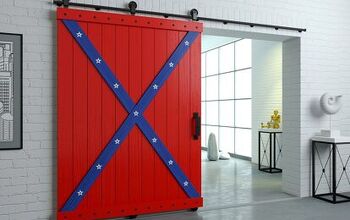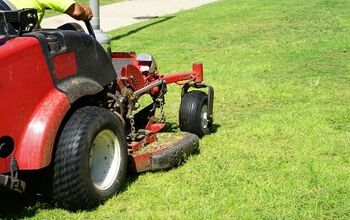How Do I Convert Cubic Centimeters to Horsepower?

The difference between cubic centimeters (cc) and horsepower (hp) is a complicated relationship with many factors. One main difference is that cc refers to the size, or volume, of an engine while hp is the measure of how much power the engine puts out.
To convert cubic centimeters to horsepower you first need to find your total engine size in cubic centimeters, or cc’s. Then use this formula to convert the cc value into horsepower: HP=CC/15. For example, let’s use 750 cc’s: 750/15=50 horsepower, or hp. This is simple to do with a calculator, you don’t need a professional.
You may be wondering, why not just divide the cc by 16 since that is between 15 and 17. Because when you use that calculation the answer is 112.5 hp. The better answer is 113 hp because it is more precise.
Is It Important To Know The Horsepower Of A Vehicle?
Before we dive into the conversion of cc to horsepower, it’s important to understand why it’s necessary in the first place to know your vehicle’s horsepower. If you’ve ever seen a car commercial or been car shopping, you’ve likely seen car manufacturing companies advertise their vehicles by emphasizing the horsepower.
This number indicates the amount of work a particular vehicle can do during its lifetime, helping customers purchase a vehicle that suits their needs. On the other hand, there are some companies that don’t mention horsepower when selling their vehicles and instead advertise the engine capacity – or cc.
With that said, there are many car owners who are much more interested in knowing the horsepower than the capacity of the engine. Although 1 hp is equal to between 15 and 17 cc, converting between the two cannot be done with a simple unitary method.
Why Do I Need To Convert CCs To HPs?
There are many reasons why you may need to convert CCs to hp. For example, if you are buying a vehicle and want one with at least 112 hp, but the car dealers all use CCs instead of hp. In this case, it would help to know the calculation process.
You may also be trying to find the power of a small engine product like a lawnmower, chainsaw, or leaf blower. Or you may just be curious as to what horsepower your vehicle is and only have information on the cubic centimeters.
What Are Cubic Centimeters?
Cubic centimeters, sometimes referred to as cubic capacity, is a measurement of displacement. It is a metric used to measure an engine’s capacity, or volume. This is the amount of air and fuel that can be pushed through the engine cylinders. It is also referred to as the volume of a cylinder head when the piston is at the lower dead center.
The general rule of cubic capacity is that the larger the CCs, the more powerful the motor is. For example, if a four-cylinder engine has a capacity of 400 CCs, each cylinder can use 100 CCs of the fuel and air mixture to compress and burn.
What Is Horsepower?
The horsepower of the engine is how much it puts out. It is a power measurement of the rate that work is done. The more the horsepower, the faster the vehicle will go because more power is sent to the wheels.
However, there are other factors that can affect the speed such as the vehicle’s weight and mechanical efficiency. For instance, if your vehicle has 120 hp but it is heavier than most and/or has engine troubles, it is not going to be as fast as a lighter car with a healthy engine.
What Can Affect The Output Of An Engine?
Horsepower relies on the method of fuel delivery, air change method, timing and number of the valves, type of fuel used, engine size and capacity, and the tuning of the engine.
On the other hand, cc goes by the number of chambers, the bore, and the engine’s design. Other things that can affect the output of an engine include:
- Air induction rate
- Compression ratio
- The air to fuel ratio
- Undersquare (short stroke) or oversquare (long stroke) engine
- Number of valves
- Maximum RPMs
Oversquare Engines
The short-stroke or oversquare engine has cylinders with a greater bore diameter than the stroke length. This gives it a bore/stroke ratio of more than 1:1. It has larger valves in the cylinder head, which increases the RPMs by decreasing the maximum ring speed and lower crank stress.
Because these larger pistons and heads have a higher ratio, their peak torque is reached at a high rate of speed. Some examples of oversquare engines include the Ford and Chevrolet small-block V8s.
Undersquare Engines
The long-stroke or undersquare engine has a smaller diameter and width (bore) than its length of piston travel (stroke), giving it a ratio of less than 1:1. With this type of engine, the longer stroke gives it higher engine friction and higher stress on the crankshaft from the increased piston acceleration.
These engines reach their peak torque at a lower RPM because of the longer crank and higher piston speeds. Front-wheel drive vehicles with inline engines have an undersquare design. Some of these include the Mazda, Honda, Nissan, and Volkswagen.
What Is The Difference Between Output Engines And Oversquare Engines?
The cc provides the data about what size the engine is, how heavy and large the engine is, and the dynamic response of an engine. Horsepower is the power of the vehicle and relates to the maximum speed it can achieve.
- Measuring cc is done with this formula: 1 liter = 10 cc
- Horsepower is found by multiplying the torque by the engine speed and then dividing the total by 5,252.
Is There An Alternative Way To Convert CCs To HP?
While the above method gives you a range of numbers rather than one specific number, there is another more detailed method you can use.
But it only works with four-cycle engines. For every 32.3 CCs, there is one hp produced. So, if a two-liter engine produces 2,000 CCs, the hp produced would be 62.11.
To Sum Things Up
What we know is that there are many factors to determine the horsepower as well as the cubic capacity of your engine.
If you are looking for data in order to buy a vehicle, it is best to concentrate more on the design, care, and health of the engine than either the CCs or the horsepower. Take it for a drive, see how it runs, or take it to a mechanic before buying it. That is more important than CCs or HPs any day.
Related Questions
Does CC affect the speed of a vehicle?
Generally speaking, the engine’s capacity (cc) does not impact the speed of a vehicle. However, as CC represents the volume of an engine, as the volume increases, so does the fuel consumption. This offers more power than usual, and power is a product of both torque and speed.With that said, the speed of a vehicle isn’t only connected to the volume of the engine (CC), but also to torque, weight, and other factors related to the vehicle.
What does it mean when a motorcycle has a higher CC?
Higher CC when it comes to a motorcycle, means bigger engine displacement. Therefore, it can digest more air and intake more fuel.This natural process helps to burn off more fuel per stroke, ultimately leading to the production of more power and more torque, but not necessarily more speed.
Does a higher CC mean less fuel consumption?
No, the higher the CC, or engine capacity, of a vehicle, the more fuel it will consume. This means that the higher CC, the less fuel efficient the vehicle.

I am a DIYer who loves writing about anything home-related. When I am not writing, you can find me studying for my PhD in Psychology, photographing nature, and swimming at the lake with my grandkids.
More by Patricia Oelze























![How To Reset A Whirlpool Cabrio Washer [In 5 Easy Steps!]](https://cdn-fastly.upgradedhome.com/media/2023/07/31/9076531/how-to-reset-a-whirlpool-cabrio-washer-in-5-easy-steps.jpg?size=350x220)




